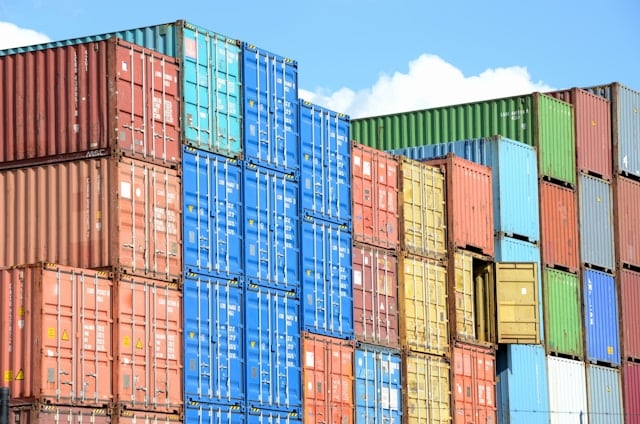In today’s complex world of food production and distribution, the need for transparency in supply chains has never been more critical. As food businesses, you are continually scrutinized by consumers, regulatory bodies, and your competitors. This scrutiny is often focused on your supply chain practices; how you handle everything from sourcing ingredients to ensuring the safe and timely delivery of your products. To meet this demand for transparency, you need to adopt a robust and clear supply chain management system. This article delves into how to create a transparent supply chain for UK food exporters.
Understanding the Importance of Supply Chain Transparency
Let’s begin by understanding what supply chain transparency actually means. It refers to the visibility throughout the supply chain, from suppliers to consumers. It allows you to know exactly where a product comes from, how it’s made, and by whom. It also means that any risk, such as unethical practices or substandard quality, can be quickly identified and dealt with.
Avez-vous vu cela : What Are the Best E-commerce Conversion Optimization Techniques for UK Sportswear Brands?
Transparency isn’t just about risk management; it’s about building trust. Consumers today are more educated and more conscious than ever before. They want to know that the food they are buying is safe, ethically sourced, and of high quality. A transparent supply chain is a powerful tool to fulfill this demand and to differentiate your business in a competitive market.
Implementing Modern Technology for Data Collection
The foundation of any transparent supply chain is accurate, comprehensive and accessible data. To collect this data, businesses are turning to modern technology. Tools such as Radio Frequency Identification (RFID), Internet of Things (IoT) devices, and blockchain technology are being widely used in the industry.
Dans le meme genre : What Are the Challenges of Digital Transformation for UK Family-Owned Businesses?
These technologies allow you to gather real-time information about your products at every stage of the supply chain. You can track a product from the field to the supermarket shelf, collecting data on its location, temperature, handling, and more. This level of detail is not just beneficial for you, but it’s also highly valued by consumers.
Strengthening Supplier Relationships
Transparency in supply chains isn’t just about technology and data. It’s also heavily dependent on your relationships with suppliers. Strong, ethical, and transparent partnerships with your suppliers are integral to ensuring the transparency of your supply chain.
Enforcing ethical practices with your suppliers isn’t just good for your conscience, it’s also good for business. Consumers are increasingly rejecting companies involved in unethical practices like modern slavery. By working closely with your suppliers, and ensuring they adhere to ethical guidelines, you can safeguard your business against such risks.
Training and Empowering Staff
Another vital component of a transparent supply chain is well-trained and empowered staff. They are the ones handling your products, dealing with suppliers, and interacting with customers. If they understand the importance of transparency and are given the tools to achieve it, they can be your company’s best asset in creating a transparent supply chain.
Invest in training your staff on the importance of supply chain transparency, and the role they play in it. Empower them with the right tools, like technology for real-time data collection. Encourage an open culture where staff can report any issues or concerns without fear of reprisal. This level of employee involvement will ensure that transparency is ingrained in your company culture.
Communicating Transparency to Consumers
Finally, transparency isn’t simply about having all the right processes in place. It’s also about communicating this transparency to your customers. Your efforts to create a transparent supply chain will only be successful if consumers perceive your business as such.
Use clear and straightforward language to communicate your supply chain practices to consumers. Leverage social media, your website, and product packaging to share stories about your suppliers, the origin of your products, and the steps you take to maintain quality and safety. This will help reinforce consumers’ trust in your business and set you apart from competitors.
Creating a transparent supply chain is not an easy task, but the rewards are worth the effort. It can enhance your reputation, build customer trust, and protect your company from potential risks. By understanding the importance of supply chain transparency, implementing modern technology, strengthening supplier relationships, training and empowering staff, and effectively communicating to consumers, you can create a transparent, robust, and successful supply chain.
Adapting to Changes and Ensuring Ongoing Transparency
Once you have established a transparent supply chain, it’s crucial to maintain it. The world of food production and distribution is dynamic, with constant changes and advancements. Adaptability is key, particularly in a global supply chain environment, where changes can occur across national borders and within different legislations.
Make regular audits of your supply chain a standard procedure. These audits should not only look for potential issues, but also for opportunities to improve and refine your processes. Stay up to date with the latest technology offerings and consider how they could enhance your data collection and real-time tracking abilities.
Equally important is maintaining strong, open lines of communication with all your suppliers. Regular dialogue can help to spot potential problems before they become significant issues. This proactive approach is particularly important in high-risk areas, such as human rights and environmental sustainability.
Furthermore, keeping an eye on changing consumer behaviours is crucial. Consumers’ expectations regarding transparency are likely to continue evolving, so your approach must be flexible enough to meet these changing demands. Regular market research and customer feedback can provide invaluable insights in this respect.
In the case of new regulations or legislations, it is essential to be prepared. Compliance with laws, particularly those related to the food industry and modern slavery, is non-negotiable. Regular legal reviews, along with a commitment to corporate social responsibility, can ensure that your supply chain remains compliant, ethical, and transparent.
Conclusion: The Long-Term Benefits of a Transparent Supply Chain
Creating a transparent supply chain is undoubtedly a complex process. Yet, the advantages it brings to your business far outweigh the efforts. Transparency in the supply chain is not just a trend but a necessity in today’s food and beverage industry.
By making your supply chain transparent, you enhance your brand’s image and credibility. You show your customers, employees, and stakeholders that you are committed to ethical practices. This not only builds trust but also encourages long-term customer loyalty.
Transparent supply chains allow businesses to swiftly identify and address any issues, thereby minimizing risks. Whether it’s a matter of product quality, forced labour, or other ethical concerns, having a clear view of your supply chain means you can respond effectively and promptly.
Moreover, a transparent supply chain can lead to increased efficiency. With real-time tracking and traceability, you can optimize your operations, reduce waste, and improve your overall supply chain management.
The journey to supply chain transparency in the United Kingdom’s food export industry, or any industry, is a challenging yet rewarding one. It requires a commitment to ethical practices, an investment in technology, long-term supplier relationships, and a well-trained and empowered workforce. However, the end result – a transparent, ethical, and efficient supply chain – is more than worth the effort. By embracing transparency, your business can thrive in the competitive global market and contribute positively to society and the environment.











